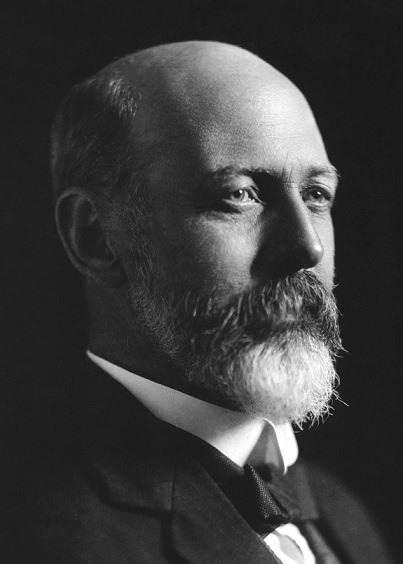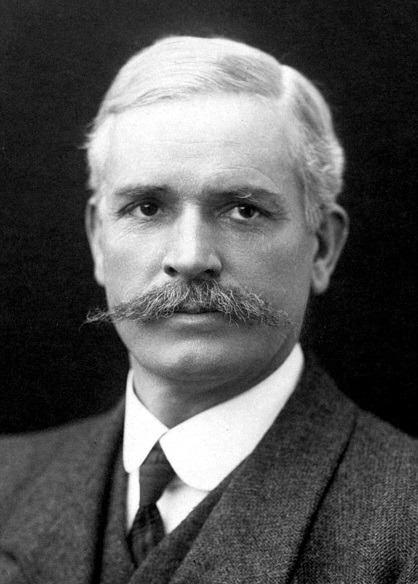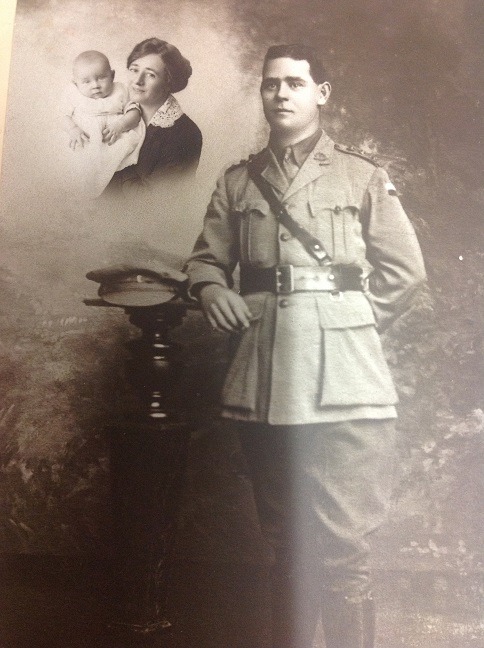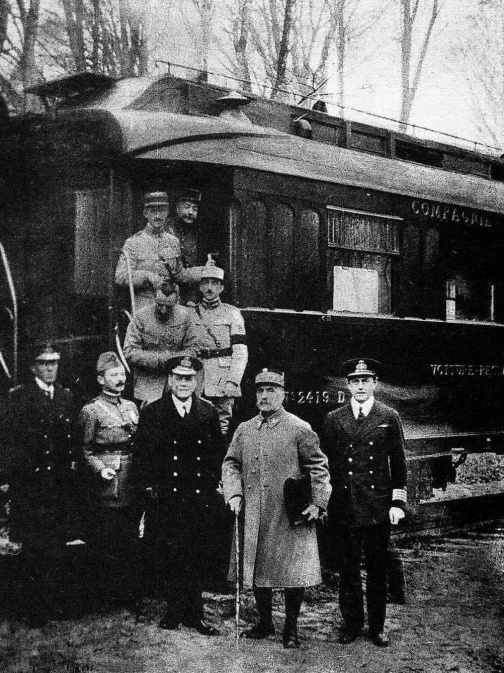World War One Ends. World War One Ends. World War One Ends. World War One Ends. World War One Ends. World War One Ends. World War One Ends.
World War One (or The Great War) 1914- 1918 was supposed to be the war to end all wars. Australia’s involvement in the First World War began when Britain and Germany went to war on 4 August 1914, and both Prime Minister Joseph Cook and Opposition Leader Andrew Fisher, who were in the midst of an election campaign, pledged full support for Britain.

Prime Minister, Joseph Cook

Opposition Leader, Andrew Fisher
After four and a half months of training near Cairo, the Australians departed by ship for the Gallipoli peninsula, along with troops from New Zealand, Britain, and France. On 25 April 1915 the Australians landed at what became known as Anzac Cove.[2]

Captain Albert McLeod
Enlisted from Katanning
On 30 October 1918 Turkey surrenders and signs the Armistice with the Allies which was followed by the former Austro-Hungarian Empire surrendering and signing an Armistice on November 3. On 11 November 1918 Germany signs the Armistice and fighting ceases on the Western Front – the war was over.
For Australia, the First World War remains the costliest conflict in terms of deaths and casualties. From a population of fewer than five million, 416,809 men enlisted, of whom more than 60,000 were killed and 156,000 wounded, gassed, or taken prisoner.
Following are news reports from various newspapers reporting on the Armistice and the end of the war in relation to the events and effects in Katanning.
Peace Celebrations at Katanning
Great Southern Herald
13 November 1918

Photograph taken after reaching agreement for the armistice that ended World War I. This is Ferdinand Foch‘s own railway carriage and the location is the Forest of Compiègne. Foch is second from the right. Left of Foch in the photo (on Foch’s own right) is the senior British representative, Sir Rosslyn Wemyss. On the right is Admiral George Hope.
(From Wikipedia)
At twenty minutes past nine on Monday evening, the first intimation that the armistice had been signed was received by the railway officials at Katanning, and a few minutes afterwards the engine whistles conveyed the glad tidings to the public. A large crowd soon assembled in Austral Terrace, waiting for further news, and at about 10.30 a message was received at this office which read:
” Following cable received through the Governor General by the Acting Prime Minister from Mr. Long, Secretary for State for Colonies a little before midnight Armistice signed at 5 a.m.“
On receipt of this news the mill whistle commenced to blow the preconcerted signal, and if there were any in the town not already in Austral Terrace, the omission was soon rectified. The haste with which many came to hear the news was evinced in their attire, overcoats and cloaks being hurriedly donned overnight garments. By this time the Katanning Brass Band had assembled in force and commencing with the National Anthem rendered the Marseillaise and patriotic music to the delight of the largest crowd ever seen in Austral Terrace. Mr. Richardson made a short speech and the crowd adjourned King’s Hall.

Last page of the Armistice agreement
On Tuesday, the country folk commenced to flock into town at an early hour, and by the time the procession was formed up to start from the Piesse memorial, there was hardly moving room in Austral Terrace. The procession, headed by Katanning Brass Band, moved off, with a number of returned soldiers, mostly in uniform, at the front of a line including motor cars and vehicles, which reached from the Baptist Church to the crossing in Austral Terrace.
Once on the Recreation Grounds proceedings were opened by the National Anthem followed by prayers and addresses by the Revs. Burbidge, Lang and Potter. The chairman of the Road Board, Mr. R. L. Richardson, in an enthusiastic address, read the conditions of armistice as received from Perth and outlined the order of celebrations.
Dr. House, as president of the R.S.A., spoke feelingly. He said that to those who had been in the fighting the news of the cessation of hostilities conveyed more than it could possibly do to those who had not suffered under fire. The men who had done so much for the Empire would be returning soon, and he urged the people who were rejoicing now, to remember those men who had made an honourable peace possible.
Mr. F. T. R. Piesse (son of F.H. Piesse ed.), president of the Local Committee of Repatriation, endorsed Dr House’s remarks. The men who had fought and who would return were entitled to every consideration, and he had worked hard and would work harder to assist in their repatriation and re-entry into private life. Whilst rejoicing at the successful conclusion of this war, he would remind those present of the men who would not return. Their dependents were with us that day, and in honour of the brave men who had given everything, our duty was plain towards those who had been deprived of their breadwinner. Cheers were called for, and the cheering continued until everyone had no voice to cheer with.
After lunch the afternoon was given over to the children, and a hastily arranged programme was carried out to the delight, not only of the youngsters, but of the elders. In the evening the huge bonfire was lighted, and fireworks display given, aided by members of the Katanning Rifle Club, under Corporal Mitchell, who did volley and drum firing so long as the ammunition lasted.
To help the rockets out a series of mortars were fired with – noise is the chief desideratum on an occasion like this – the greatest possible success. An item which added to the hilarity of the day was a forlorn band of “Pierrots,” who carried round an effigy of the Kaiser, begging for sympathy and kindness for him in his fallen estate. Before the afternoon closed the Kaiser was given a seat of honour high up on the heap of brushwood, and later in the evening the iron cross with which he was decorated glowed red amongst the embers long after he had disappeared. After the fireworks, the celebrations were continued in the Town Hall and King’s Hall, where a large number indulged in dancing until an early hour.
IN KATANNING.
Great Southern Herald
16 November 1918
Wednesday being proclaimed a public holiday; peace celebrations were carried on from Monday and Tuesday. In the morning all the churches held thanksgiving services, to which a very large number of people attended. After lunch the official programme for the day was carried through, commencing with a procession from the Piesse memorial at 2 o’clock.
Mr. J. Johnson marshalled the procession in good time, and headed by the band, it marched off to the Recreation Ground. Capt. G. Mason took charge of the returned soldiers, who were followed in rotation by the Senior Cadets, commanded by Warrant Officer Pitt, the Girl Guides, officered by Lieut. Esme Purkiss, the Boy Scouts under Scoutmaster Rev. W. Lang, the Druids’ Lodge display, and then a medley of fancy costume brigades, school children, a tin can band, vehicles and motor cars. As soon as possible after everyone reached the grounds the sports were commenced and carried through without a hitch and to the evident satisfaction of everyone.

World War I recruiting poster
featuring “John Bull”.
As the day had been given over to the children, the majority of the events were arranged for their pleasure, and the committee can be congratulated on having given the youngsters a day that should long be remembered by them. As on Tuesday, a party in fancy costume “The Old Guard ” headed by one who was variously described as being Napoleon Bonaparte, the Kaiser, and the Crown Prince on a yachting tour, together with a facsimile of “John Bull” added greatly to the afternoon’s amusement. Afternoon tea was served on the grounds to the children, and sweets and oranges distributed amongst them ad lib. In the evening there was a further fine display of fireworks, generously provided by Mr. F. T. R. Piesse, and obtained for him in Perth under difficulties as the city was absolutely bare of fireworks soon after the declaration of the armistice was made. Afterwards there were pictures in the Town Hall and a dance in the King’s Hall.
Taking it right through, the celebrations were memorable, and it is a great thing to be able to say that notwithstanding the intense excitement prevailing, there was practically not a man to be seen the worse for drink. The townspeople that organised and carried through the arrangements are deserving of praise for the wholehearted manner in which they worked to mark the occasion.
The hardest worked in the delegations were the members of the Katanning Brass Band, who from time the news came through until late Wednesday night, gave themselves entirely to the services of the town, and without whom the celebrations could not have been such a success.
Inasmuch as the Band worked so hard for the pubic it is fitting that the public should make a small return by attending the Band recital on the Recreation Grounds on Sunday at 3 30, when a collection in aid of Band funds will be made.
Repatriation Committee.
Great Southern Herald
16 November 1918
The usual weekly meeting of the Katanning and Districts Local Committee of Repatriation was held on Friday evening last, the vice-president (Canon Burbidge) presiding over a good attendance.
An account for 4/7, rates on property at Ewlyamartup, was read and passed for payment. Correspondence was read from the Repatriation Department re permission for entertainments, and also from the Defence Department promising that names of returned soldiers would be forwarded as early as possible.
A letter was read from the Repatriation Committee at Mount Barker enclosing an application for a loan of £50 for the purpose of erecting a dwelling for a returned soldier at Cranbrook. The secretary was instructed to reply pointing out that Cranbrook was not in the area over which this committee has control and recommending that application be made to the Workers Home Board for the amount required.
The Agricultural Bank wrote stating that land applied for by a returned soldier in the district would be gazetted open during the week.
A letter was received from the Relatives’ Association with reference to the welcome home to be given to the returning ANZACs. The hearty assistance of the members of the council was promised.
A returned soldier made application for assistance to enable him to earn a living while he is learning a trade. It was decided that a bonus of 10/- per week be granted for six months, the case to be brought up for review at the end of three months.
The secretary was instructed to write to the Repatriation Board urging that full information be forwarded at once concerning the Department’s scheme for subsidising the wages of men who are physically unable to earn full wages. The secretary was also instructed to write to the Pension Board, pointing out the inequalities in various pensions which had been granted to returned men in the Katanning district.
Mr. Bowden reported in connection with the recent show that the net proceeds from the stalls run by his committee amounted to £58/14/5. In addition to this, men had been provided for the gates and ticket boxes, which resulted in a considerable saving to the Agricultural Society.
The report was received and adopted, and a hearty vote of thanks and appreciation was extended to all who bad assisted in this work.
The picture committee reported that the nett proceeds arising from the pictures shown during show week would be approximately £73. Collections committee reported that the sum of £43/9- had been received by direct contributions. Canon Burbidge reported that the Repatriation Department had not yet forwarded sustenance money to a returned soldier suffering from illness. The committee authorised the loan of a further £5 to be refunded when the Government cheque was received.
The secretary was instructed to write to the Deputy Controller, and also to the Minister for Repatriation asking the cause of delay in forwarding this and similar amounts, and urging that cases such as this should meet with prompt relief.
It was resolved to apply to the local Tennis Club for the loan of a 100-gallon tank which was urgently needed by a returned soldier during the summer months. The secretary was authorised to make an advance of £2/15/6 to cover sustenance money which was in arrears to another returned soldier, and to make application to the Deputy Controller to refund this amount. A case was mentioned of a soldier’s wife with a number of children who claimed that monies due to her from the Defence Department were now £36 in arrears. It was resolved that full inquiries be made into this case, and report be read at next meeting.
Correspondence.
Great Southern Herald
23 November 1918
To the Editor.
Sir,-The Committee appointed to supervise the Peace Celebrations, on 12th and 13th, desire that I should express their appreciation through, your valued paper, to all the friends who helped make the days so pleasant, and that the Katanning Band be publicly thanked for the splendid assistance so graciously rendered to the district; also for the generous gift and display of fireworks given by Mr. F. T. R. Piesse, the Sport Committee, the Concert Troupe, the ladies who helped with tea and the boys and friends who helped build the bonfire.
We thank them all
Yours, etc.,
R. L. RICHARDSON,
Chairman. Katanning,
